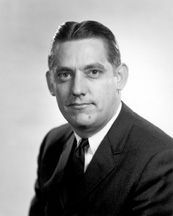Fred R. Harris
| Fred R. Harris | |
|---|---|
 |
|
|
United States Senator from Oklahoma |
|
|
In office November 4, 1964 – January 3, 1973 |
|
| Preceded by | J. Howard Edmondson |
| Succeeded by | Dewey F. Bartlett |
| 32nd Chairman of the Democratic National Committee | |
|
In office 1969–1970 |
|
| Preceded by | Lawrence F. O'Brien |
| Succeeded by | Lawrence F. O'Brien |
| Member of the Oklahoma Senate | |
|
In office 1956–1964 |
|
| Personal details | |
| Born |
Fred Roy Harris November 13, 1930 Walters, Oklahoma, USA |
| Political party | Democratic |
| Spouse(s) |
LaDonna Harris, Margaret Elliston |
| Children | Kathryn Harris (now Tijerina) (born 1950), Byron Harris (born 1958), Laura Harris (born 1961) |
| Education | University of Oklahoma |
| Profession | Lawyer, Academician |
| Religion | Baptist |
Fred Roy Harris (born November 13, 1930) is a former Democratic United States Senator elected twice from the state of Oklahoma. He served from 1964 until 1973.
Harris was born November 13, 1930 in Walters, Cotton County, Oklahoma, the son of Eunice Alene (Person) and Fred Byron Harris, a sharecropper. He graduated from the University of Oklahoma (OU) in 1952, where he earned bachelor's degree in history and political science. He then entered the OU law school, where he was administrative assistant to the dean and was successively book editor and managing editor of the Law Review. He received the LL B. degree with distinction and was admitted to the bar in 1954. He was first elected to the Oklahoma State Senate in 1956 and served in it until 1964. For most of the time, he was one of its youngest members. He made an unsuccessful bid for governor of Oklahoma in 1962, which allowed him to become better known throughout the state as a consequence of this campaign.
In 1964, Harris entered the campaign to serve out the unexpired term of United States Senator Robert S. Kerr, who had died in office. He was successful, defeating former Governor J. Howard Edmondson, who had been appointed to succeed Kerr, in the Democratic primary and then narrowly upsetting Republican nominee and legendary Oklahoma football coach Bud Wilkinson by 51% to 49%, and was sworn in as soon as the vote totals could be verified, again becoming one of the youngest members of the body in which he was serving.
Senator Harris was a firm supporter of President Lyndon Johnson's Great Society programs, which were often unpopular in his home state. In 1968, in March 1968 the president appointed him to the National Advisory Commission on Civil Disorders. He quickly became one of the most active members and was deeply concerned about the plight of economically deprived inner-city African Americans. He also strongly supported agricultural programs, the Arkansas River Navigation Program and Indian health programs, which were all very popular in Oklahoma.
...
Wikipedia
